9 Minutes
The Foreign Investors Annual Summit 2025, organized by the American Chamber of Commerce in Lithuania, convened some of the country’s most influential political and business leaders to examine one of the most pressing questions for Lithuania’s economic future:
How can policymakers and the private sector work together to secure a predictable, competitive, and prosperous environment for investment and growth?
The high-level panel, titled “How Business and Policymakers Can Work Together”, was moderated by Vilius Bernatonis, Managing Partner at TGS Baltic. It brought together four distinguished speakers representing politics, national security, and business leadership:
Viktorija Čmilytė-Nielsen, Deputy Speaker of the Lithuanian Parliament
Giedrimas Jeglinskas, Chair of the National Security and Defence Committee and former NATO Assistant Secretary General
Lina Šiumetė, CEO of Coherent Solutions
Yigit Dizdarer, General Manager of Philip Morris International in Lithuania
Originally, Energy Minister Dainius Kreivys was scheduled to participate, but was absent due to other commitments. Despite this, the panel delivered one of the most substantive discussions of the summit, offering both critical reflections and forward-looking recommendations.
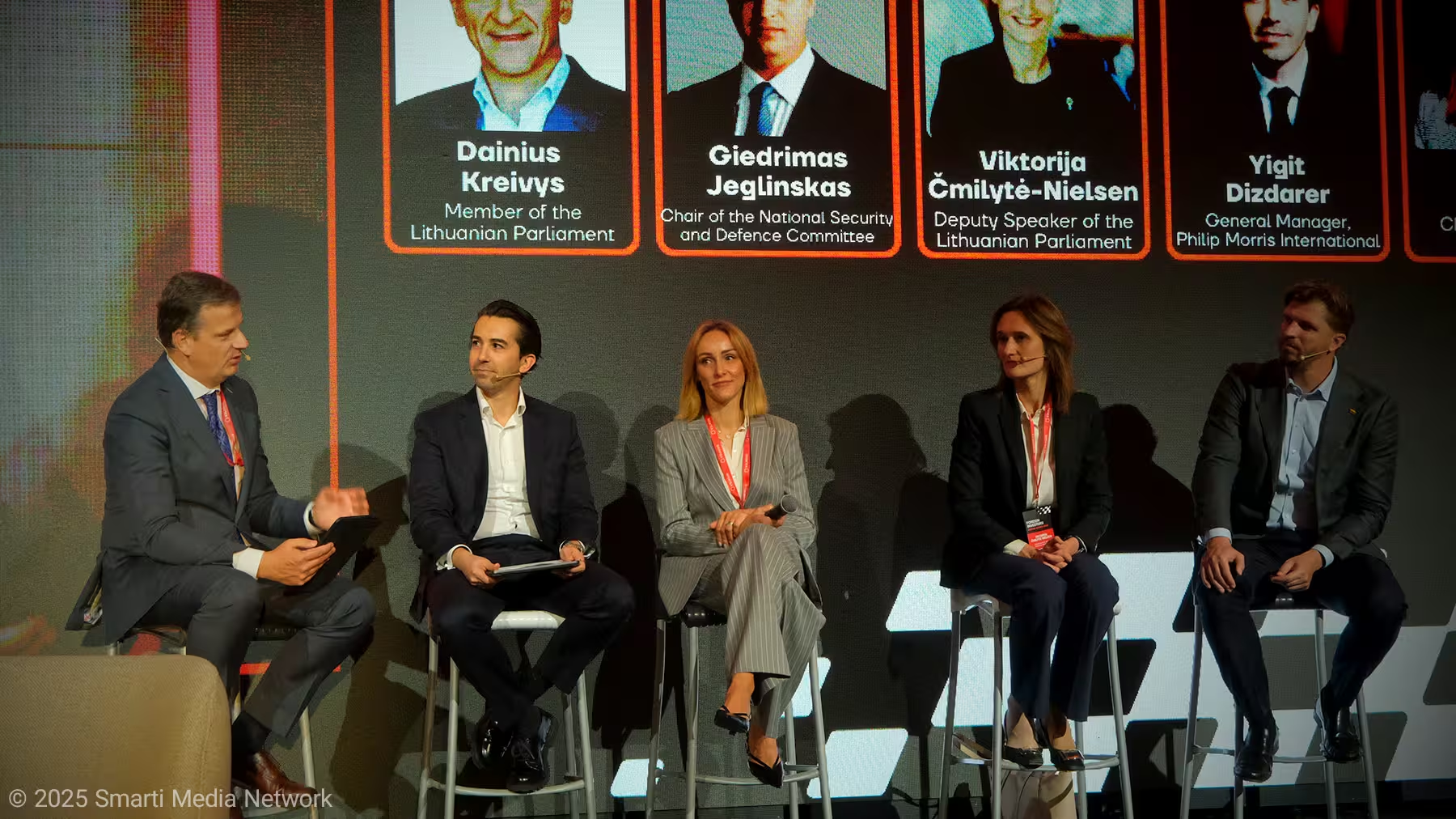
Setting the Stage: Continuity Over Partisanship
Opening the session, Vilius Bernatonis noted that the success of any investment environment depends not on one government, but on policy continuity and the maturity of political dialogue.
He invited panelists to avoid partisan debates and instead focus on systemic issues — consistency, predictability, and long-term cooperation between state institutions and businesses.
“It’s not about one government or another. It’s about how we ensure continuity. Investors value stability over political cycles.”
This framing guided a discussion that blended economic strategy, security concerns, regulatory practices, and talent development into a comprehensive vision for Lithuania’s next decade.
A Record of Resilience: Viktorija Čmilytė-Nielsen on Predictability and Trust
Viktorija Čmilytė-Nielsen emphasized that Lithuania has already proven its resilience across multiple crises — from migration pressures and the pandemic to energy shocks and the war in Ukraine.
“Lithuania has managed to adapt and emerge stronger from every challenge. That is a strength we must now build upon with strategic predictability.”
She identified predictability as the most critical factor for investors and economic planning. While acknowledging recent political turbulence, she argued that cross-party consensus is essential to maintaining business confidence.
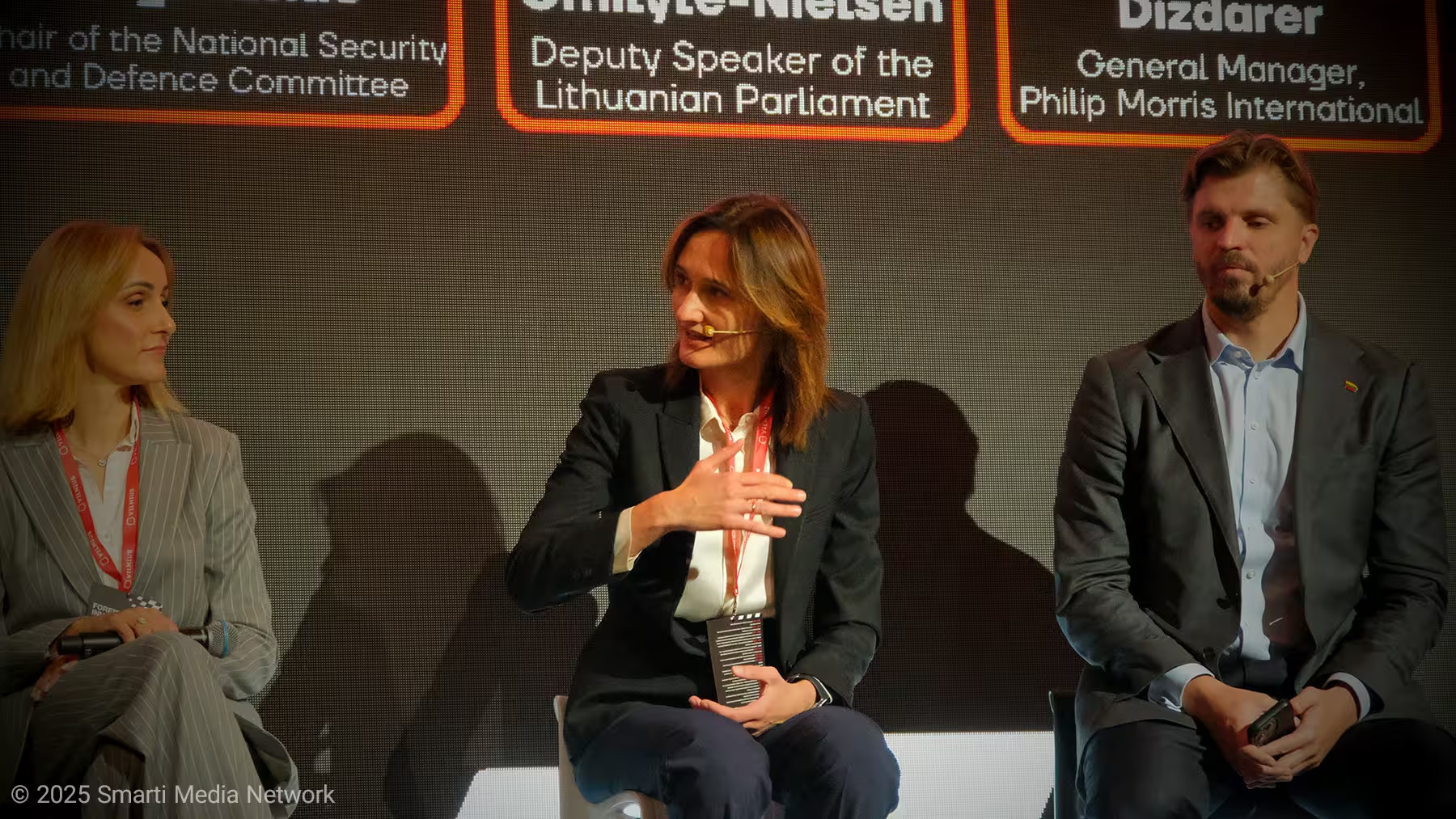
“Complexity is manageable. Uncertainty is not. Our task is to ensure clarity and stability in the rules of the game.”
Čmilytė-Nielsen highlighted Lithuania’s small scale as an advantage, noting that decision-makers and businesses are often only “one handshake away” from solving problems, provided transparency and dialogue are maintained.
Building Scale and Strategic Capacity: Giedrimas Jeglinskas’ Vision
Giedrimas Jeglinskas, drawing on his experience in defense, NATO, and economic policy, argued that Lithuania’s key challenge lies in scale. He warned that without developing national champions and fostering industrial depth, Lithuania risks stagnating as a small service-based economy.
“We must think beyond incremental reforms. The next phase of growth demands scale — in industry, in innovation, and in ambition.”
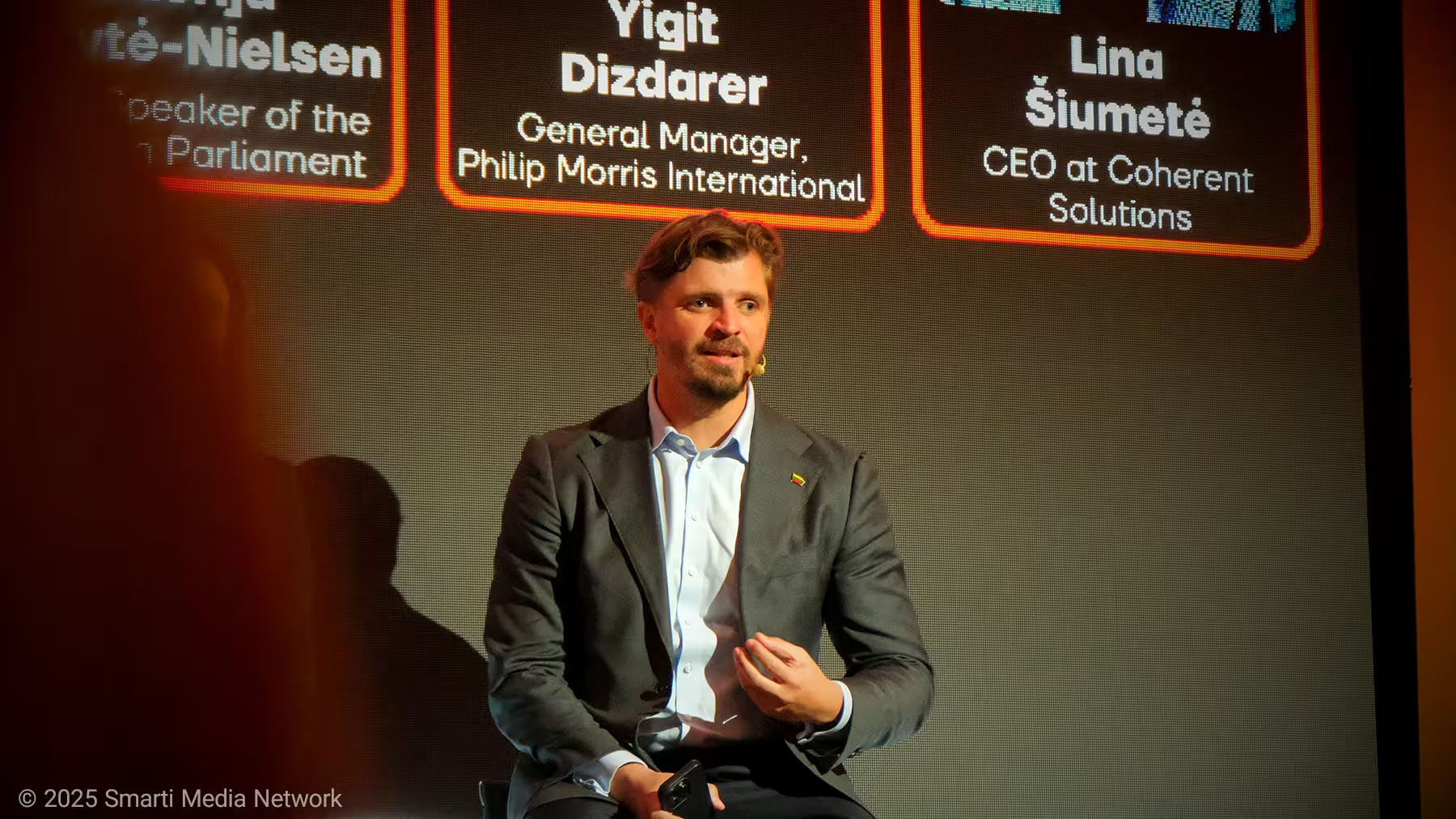
Jeglinskas outlined three structural pillars for national strategy:
1. Security as an Economic Framework
Lithuania must integrate national security priorities into its industrial and economic planning. Defense readiness, energy independence, and technological sovereignty should guide investment decisions.
“Security is no longer separate from economics. It is the foundation of sustainable prosperity.”
2. The Return of Industrial Policy
Following global trends led by the United States and the European Union, Jeglinskas argued that industrial policy — once dismissed as outdated — is making a comeback.
“Governments everywhere are taking a more active role in guiding strategic sectors. Lithuania must do the same — from AI and green energy to defense and high-tech manufacturing.”
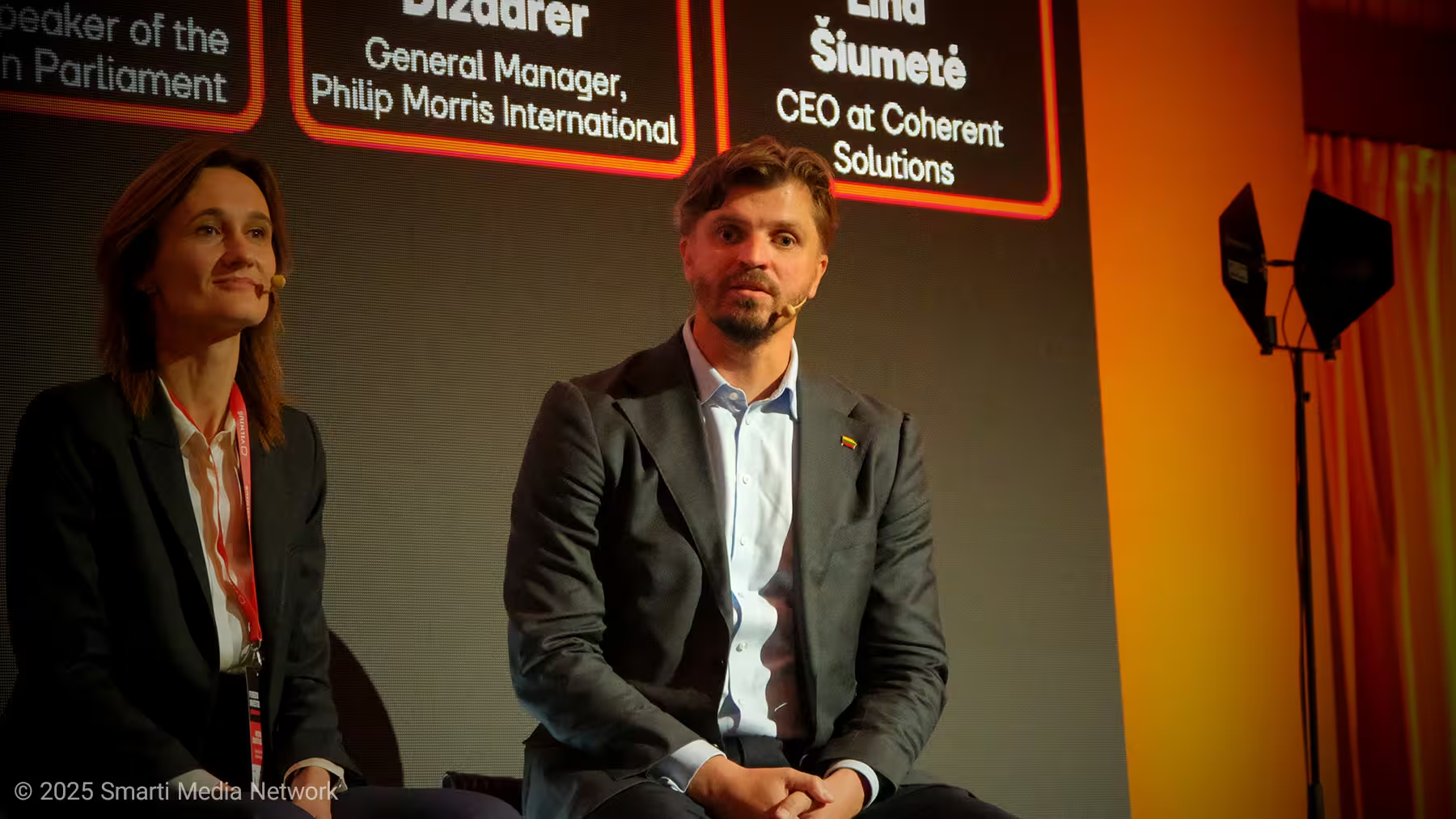
He called for state-backed investment vehicles to co-finance innovation and accelerate the emergence of new industries.
3. Competent and Visionary Governance
Jeglinskas emphasized that politics determines economics, not the other way around.
“Global competition demands leaders who understand megatrends and act strategically. Without competent governance, we risk missing the opportunities shaping the future.”
He argued that Lithuania must invest in policy capacity, data-driven decision-making, and long-term planning beyond electoral cycles.
Smart Regulation and Competitiveness: Insights from Lina Šiumetė
Lina Šiumetė, representing the perspective of business leadership, urged policymakers to strike a balance between regulatory compliance and economic competitiveness.
“Lithuania often strives to be the best student in the EU class — adopting new directives faster than anyone. But without local impact assessments, this approach can harm competitiveness.”
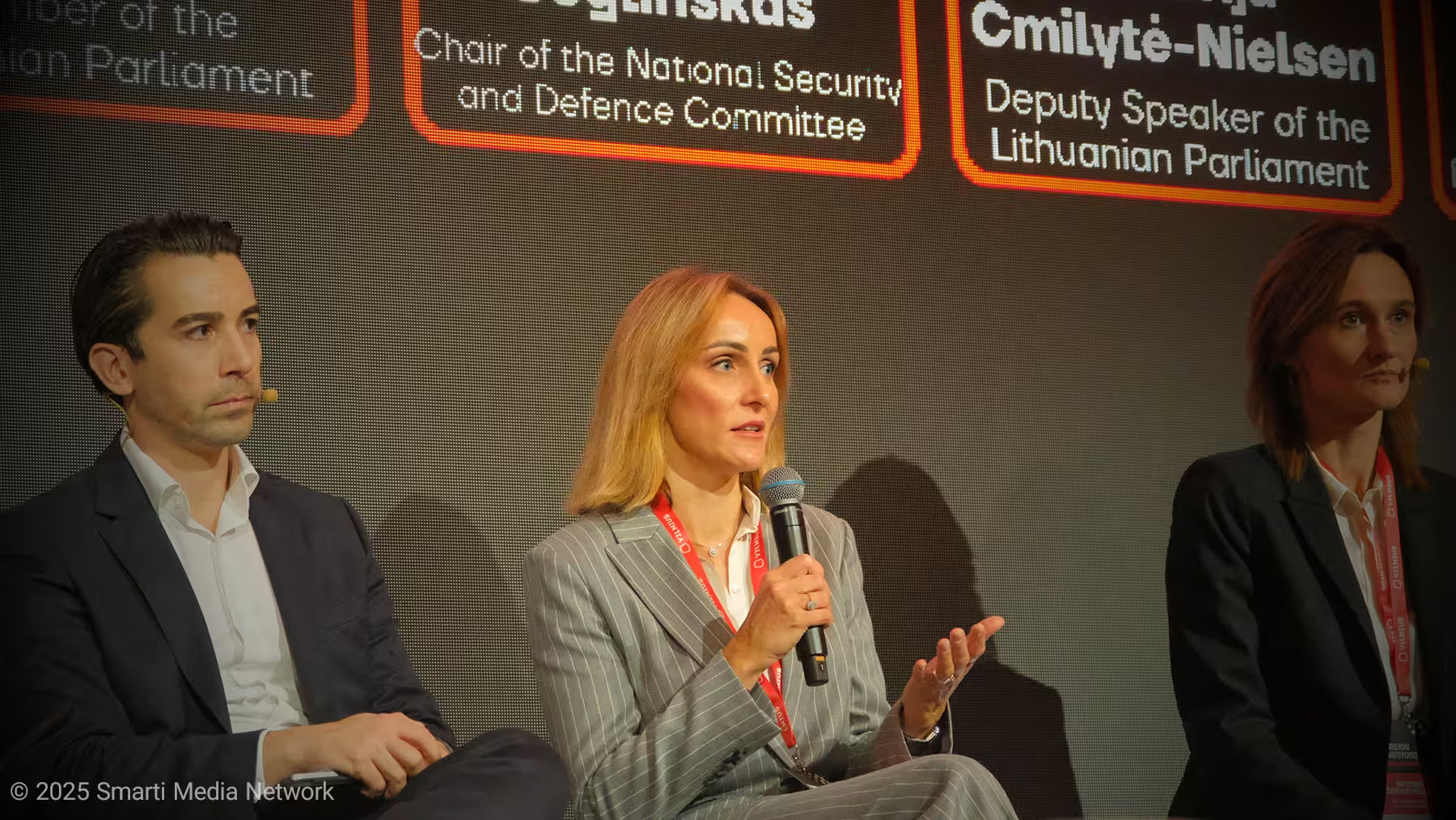
She called for a more measured approach:
Assess the economic impact of EU directives before adoption
Phase implementation to allow businesses to adapt
Maintain continuous dialogue between government and industry
Šiumetė warned that rapid regulatory changes, rising labor costs, and inconsistent policies can deter investment, even as Lithuania’s global reputation improves.
She proposed a strategy to turn Lithuania into a “brain magnet” — a sandbox for global talent and innovation:
“We must attract not only capital but knowledge. By offering clear incentives — from fast-track visas to competitive taxation — we can become a hub for innovators.”
The Investor’s Perspective: Yigit Dizdarer on Predictability, Dialogue, and Skills
As the General Manager of a multinational corporation, Yigit Dizdarer distilled investor priorities into three key expectations:
1. Predictability
Investors seek stability and transparency more than short-term incentives. Unforeseen regulatory shifts and inconsistent messaging undermine confidence.
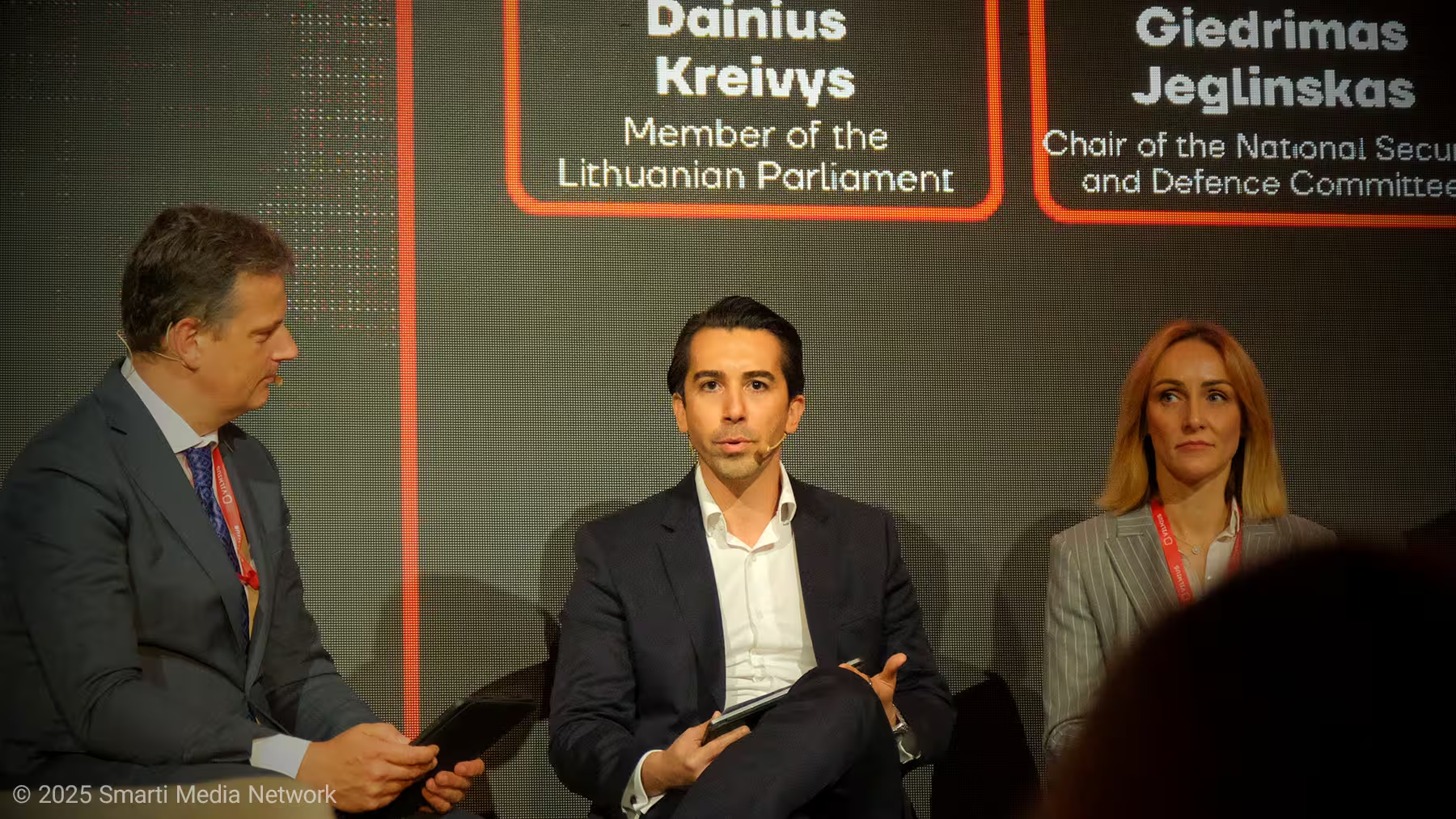
2. Open Dialogue
Dizdarer stressed the importance of early and transparent communication between government and business:
“Procedural frictions are manageable if there is dialogue. What investors cannot tolerate is silence.”
3. Capability and Skills
He identified talent readiness as a growing concern, given the demands of AI, automation, and advanced manufacturing.
“The skills that brought us here will not take us forward. We must invest in upskilling and lifelong learning.”
Dizdarer also raised the issue of the shadow economy, which drains resources that could otherwise support innovation and defense investment:
“Reducing illicit trade is not only fiscal policy — it’s national security.”
From EU Compliance to Strategic Autonomy
Several panelists agreed that Lithuania’s commitment to EU integration is a strength, but must evolve toward a more strategic posture.
Jeglinskas warned against overcompliance:
“We should not follow Brussels blindly. The goal is not obedience but prosperity.”
Šiumetė called for impact-based adoption of EU regulations, while Čmilytė-Nielsen emphasized Lithuania’s credibility as a proactive, constructive member of the European community:
“Our voice in Europe is strongest when we lead initiatives, not merely implement them.”
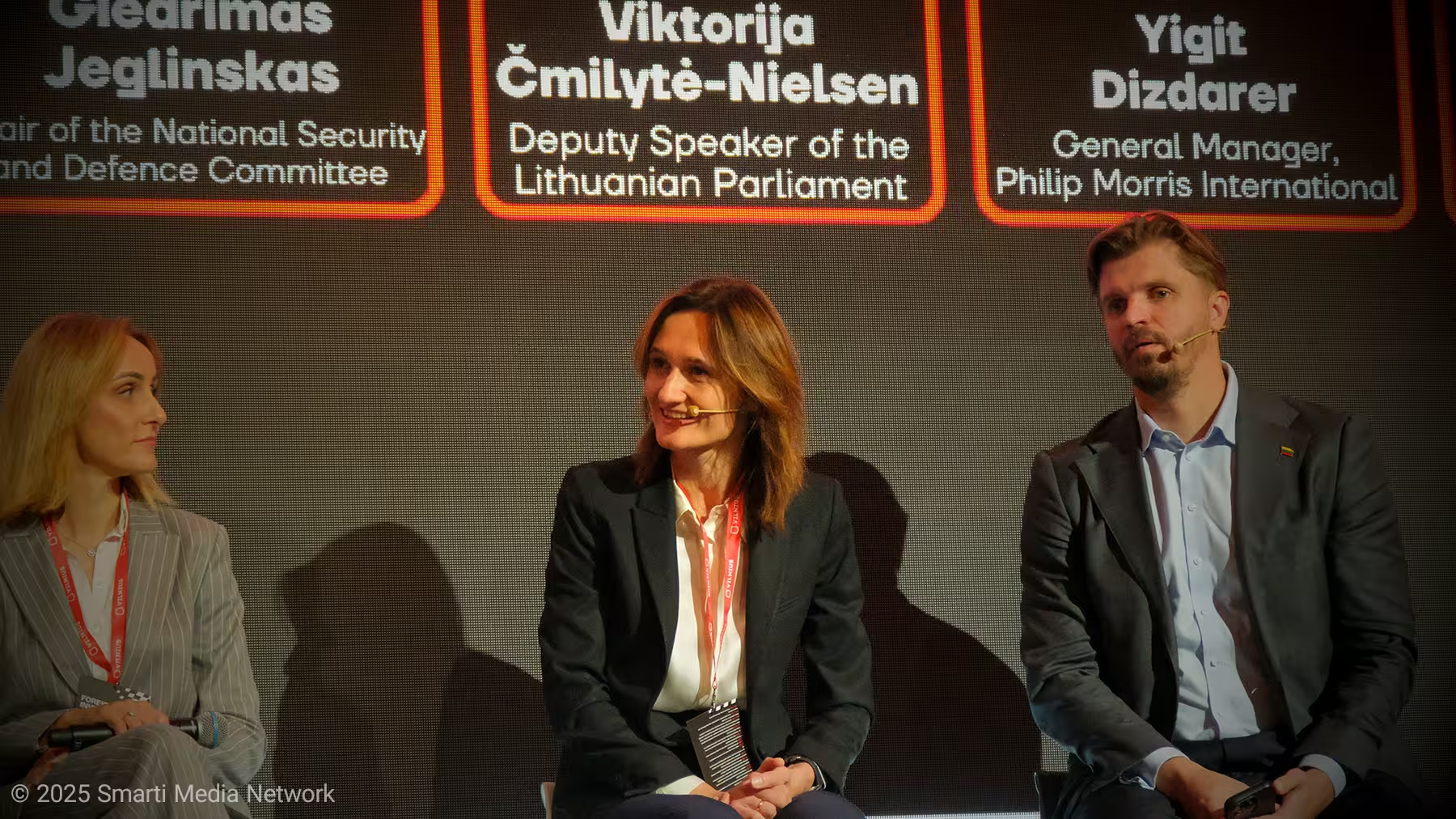
Defense Industry: From Obligation to Opportunity
A major theme of the panel was the emerging role of the defense sector as both a security necessity and an economic growth engine.
Jeglinskas noted that European defense spending is expected to surpass €800 billion, presenting unprecedented opportunities for innovation, manufacturing, and export.
He proposed the creation of a national investment fund to support Lithuanian companies developing dual-use technologies.
Čmilytė-Nielsen added that Lithuania’s close partnership with Ukraine could create new avenues for collaboration and regional leadership in defense innovation.
Dizdarer linked the discussion to broader fiscal capacity, arguing that reducing shadow markets would free significant resources for strategic sectors.
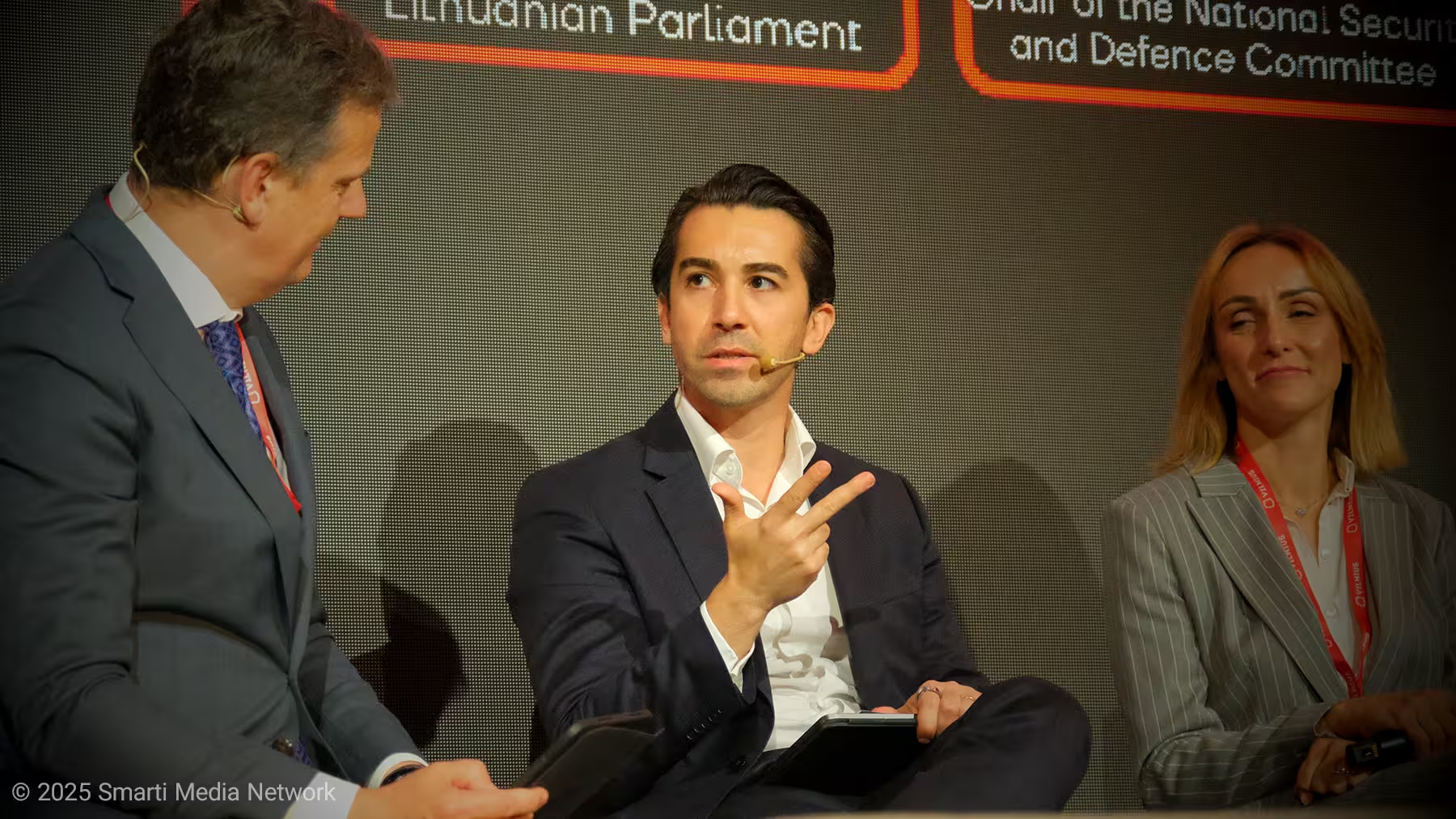
Talent, Incentives, and the Risk of Mediocrity
Šiumetė issued a clear warning: Lithuania cannot afford to incentivize mediocrity.
“We must reward excellence. Prosperity depends on differentiating achievement and driving ambition.”
She advocated targeted incentives for high-performing professionals and companies, along with education reforms aligned with emerging industries.
Dizdarer echoed the urgency of adaptation:
“Artificial intelligence and automation will reshape industries faster than we expect. Our workforce must evolve even faster.”
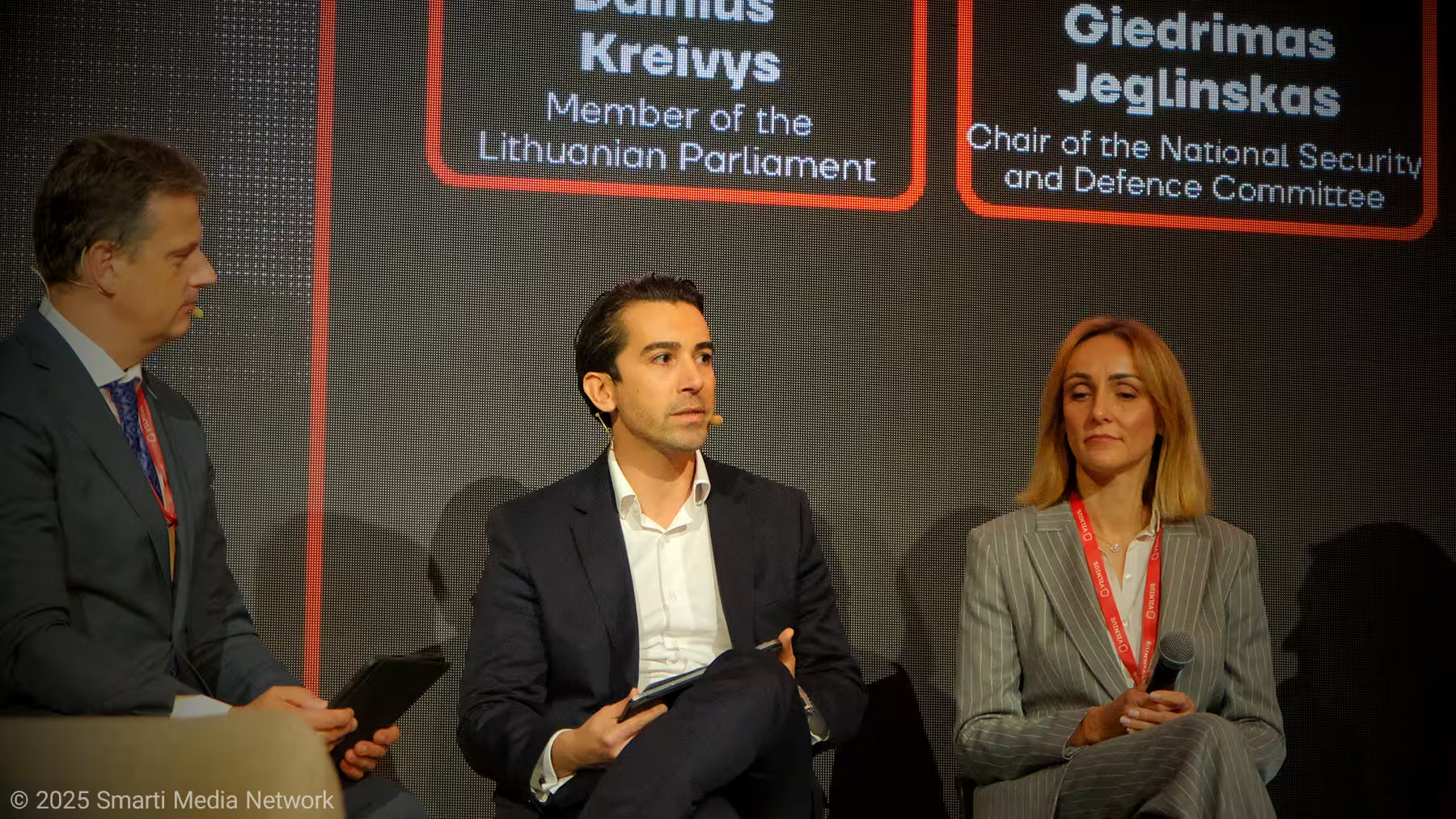
The Closing Round: What Each Side Expects
Moderator Bernatonis concluded with a direct question:
If the government could act tomorrow, what would you ask for?
Lina Šiumetė: Consistency. “Good ideas mean little without follow-through.”
Viktorija Čmilytė-Nielsen: Predictability. “Stability is the best economic policy.”
Yigit Dizdarer: Courage for dialogue. “Engage early, act jointly.”
Giedrimas Jeglinskas: Ambition and hunger. “We must think bigger — and act faster.”
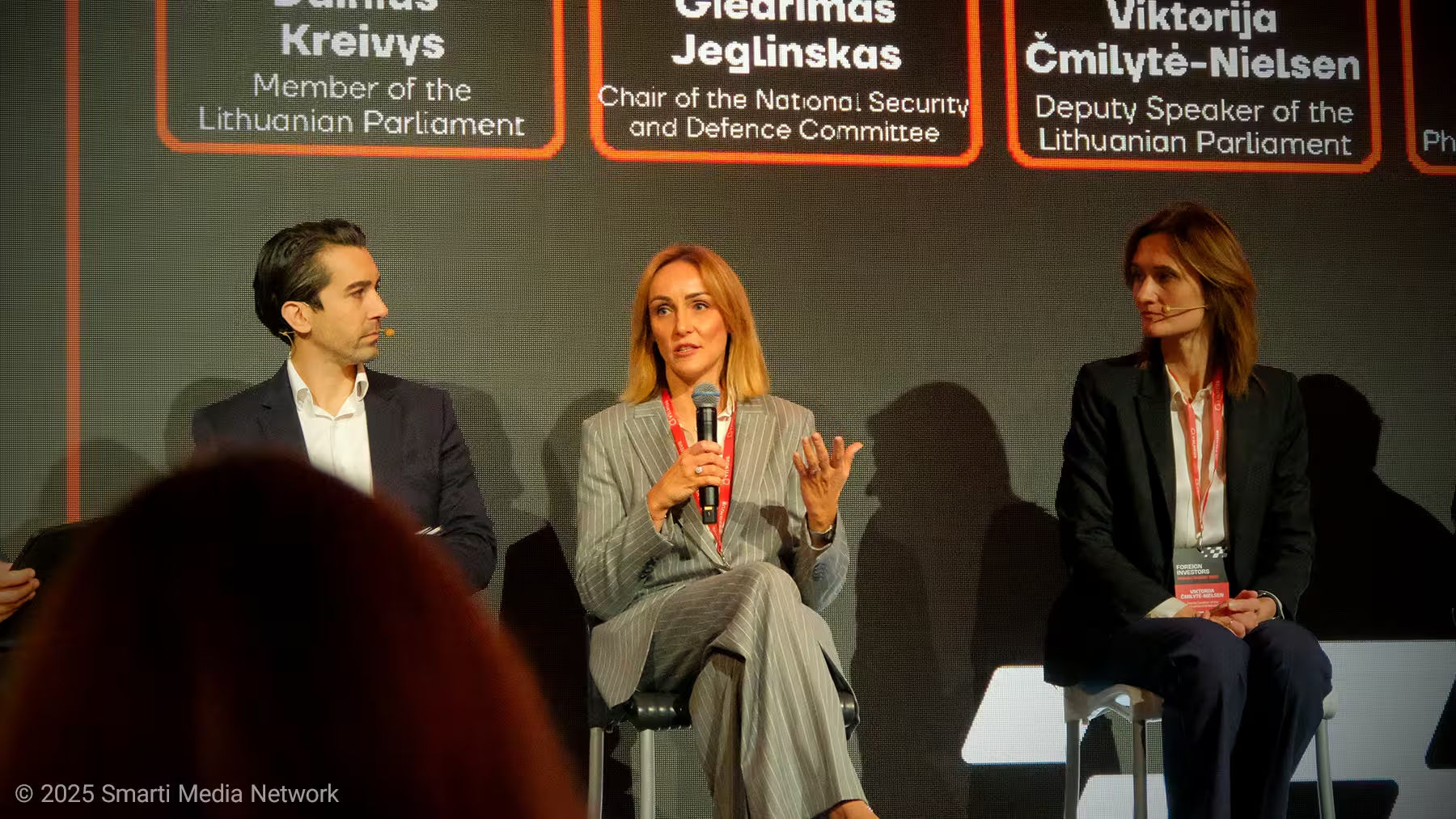
Conclusion: Toward a Strategic Partnership
The panel concluded that Lithuania’s next stage of development will depend not on isolated reforms, but on a strategic partnership between government and business grounded in:
Policy predictability
Smart regulation and impact-based EU compliance
Investment in talent and innovation
A proactive industrial and defense strategy
Long-term continuity beyond political cycles

As the discussion revealed, Lithuania’s small size is not a limitation but a potential strength — enabling faster adaptation, closer dialogue, and more agile policymaking.
If these elements align, Lithuania can position itself not just as a resilient economy, but as a strategic leader among emerging European nations.


Leave a Comment